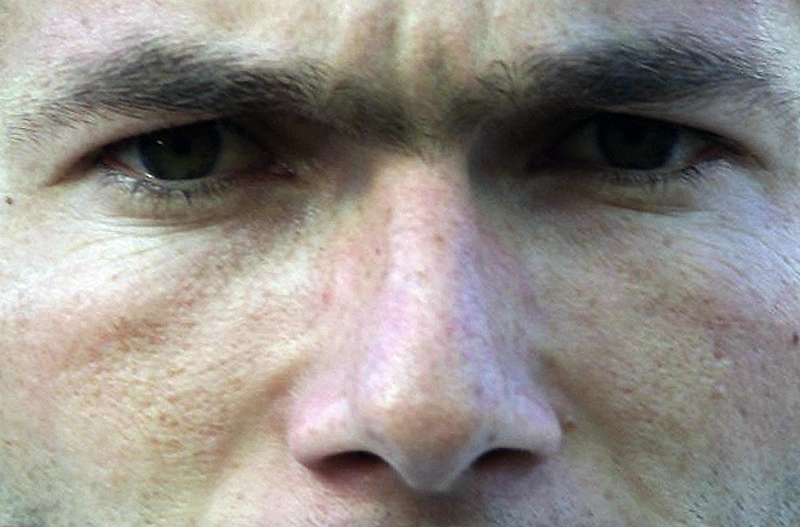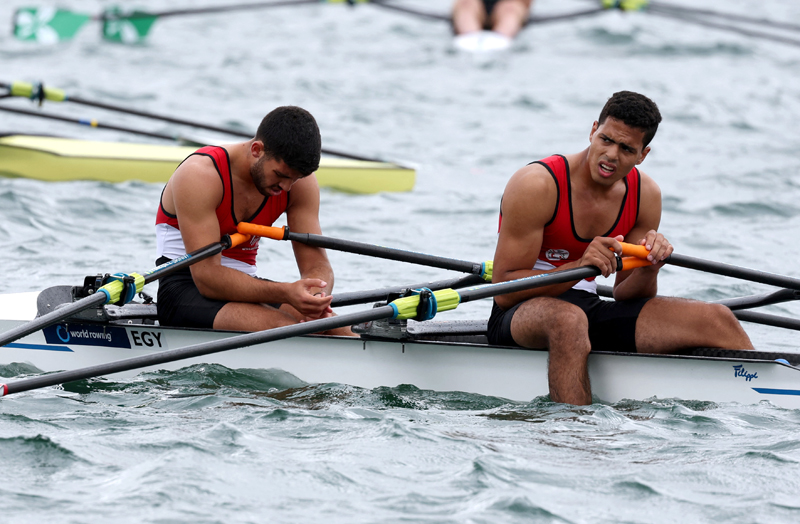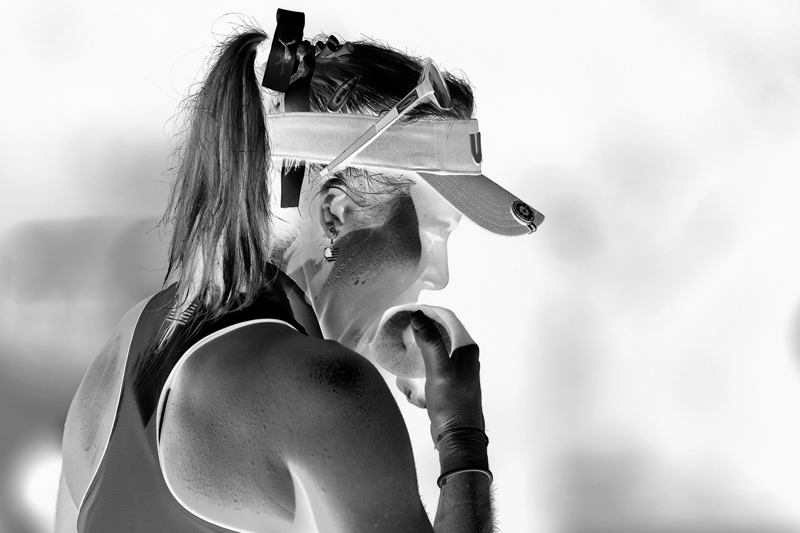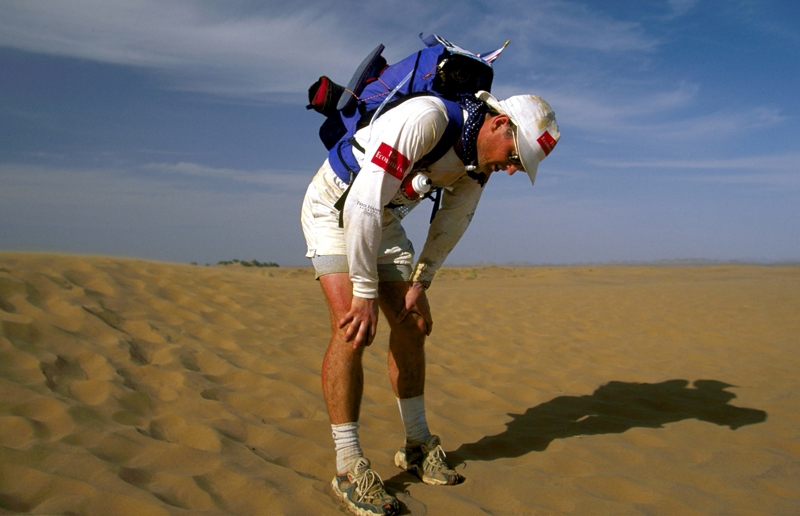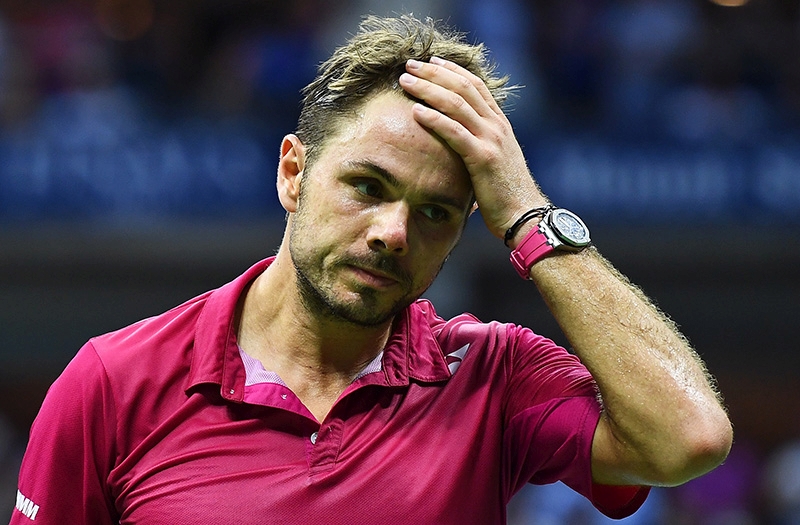You are viewing 1 of your 1 free articles. For unlimited access take a risk-free trial
State of mind: Are you mentally tough enough?
Athletes, coaches, commentators, and journalists often refer to the construct of mental toughness as an explanation of why certain people fail under immense pressures, whereas others seem to excel during sporting competition. Adam Nicholls shows you how you can behave and think like a mentally tough athlete.
Athletes, coaches, commentators, and journalists often refer to the construct of mental toughness as an explanation of why certain people fail under immense pressures, whereas others seem to excel during sporting competition. Adam Nicholls shows you how you can behave and think like a mentally tough athlete.
It’s widely accepted by coaches and athletes that mental toughness is the most important psychological characteristic that determines athletic success(1, 2). An important question, therefore, is what is mental toughness and what do mentally tough athletes think about or do when competing?
‘Mental toughness is many things and rather difficult to explain. Its qualities are sacrifice and self-denial. Also, most importantly, it is combined with a perfectly disciplined will that refuses to give in. It’s a state of mind – you could call it character in action.’
– Vince Lombardi
As Vincent Lombardi so eloquently stated, mental toughness is difficult to explain and contains many different attributes. Nevertheless, mentally tough athletes seem to have complete trust in their ability, no matter how much stress they encounter, and they believe they will be successful. Researchers from the University of Hull, UK have identified a number of constructs that are related to mental toughness (see figure 1, below).
In the quotation from Tiger Woods (see below), he says that mental toughness is something that you have to discover from within and that you have to keep challenging yourself to do better. Thinking and behaving the same way a mentally tough athlete does has the potential to boost your mental toughness, but you need push yourself to learn new psychological skills. The remainder of this article will discuss how you can change your coping, boost levels of coping self-efficacy, optimism and stress control, whilst reducing pessimistic behaviour and stress intensity to enhance your mental toughness level and maximise your performance.
Tiger Woods’ understanding of mental toughness:
"It’s something you have to find from within. You have to keep pushing yourself from within. It’s not about what other people think and what other people say. It’s about what you want to accomplish and whether you want to go out there and be prepared to beat everyone you play or face."
Tiger Woods
Coping
Coping refers to the thoughts and behaviours we engage in to manage the stress we experience whilst competing or training in sport. Researchers from the University of Hull explored the relationship between mental toughness and coping among a sample of 677 athletes(3). Their findings revealed massive differences between how the most and least mentally tough athletes coped with stress during sport. The most mentally tough athletes used coping strategies such as mental imagery, effort expenditure, thought control, relaxation, and logical analysis very frequently (see table 1, below).
In order to enhance your levels of mental toughness, practise the strategies used by mentally tough athletes on a regular basis. The same researchers also found that the least mentally tough athletes used a number of strategies (eg distancing, mental distraction, and resignation – see table 2, overleaf) much more frequently than the most mentally tough athletes(3).
Athletes should maximise their mental toughness by using the coping strategies that the most mentally tough athletes use but just as importantly, be aware of the coping strategies that shouldn’t be used. Even when you experience immense stress – especially during stressful competitive encounters – do not use the strategies from table 2, even though there may be a temptation to do so, because it will be the easier option. To be a mentally tough athlete you cannot take the easy option!
Coping self-efficacy and optimism
Coping self-efficacy refers to belief in one’s ability to cope effectively with stress during competition(4). Emerging research that has just been submitted to a journal by researchers at the University of Hull has found a positive relationship between coping self-efficacy and mental toughness among 206 athletes, including a number of professional rugby league players(5). The most mentally tough athletes were very confident that their coping strategies would be able to manage stress effectively, compared to the least mentally tough athletes who were not very confident.
In the study by the researchers from Hull(3), the most mentally tough athletes were also the most optimistic. Optimism refers to the hopefulness and confidence a person has regarding any uncertain outcomes and is thought to be a major factor in determining which of two types of behaviour are adopted: continued striving or giving up and turning away. More optimistic individuals are likely exhibit increased effort to attain goals, whereas more pessimistic people are likely to withdraw from situations and disengage from attempts to attain a goal(6).
Furthermore, other research has found that more optimistic skiers perform much better than their less optimistic counterparts(7). Increasing your optimism levels may therefore be the key to increasing your mental toughness and maximising performance.
An ‘ABCDE’ model to help people enhance their levels of optimism has been proposed by a researcher at the University of Pennsylvania(8). During times of stress we encounter Adversity. An example of adversity could be missing a tackle in rugby on the left shoulder, dropping a high catch in cricket, or missing a left-to-right putt from three feet in golf. Thinking about what has just happened can then influence our Beliefs. For instance, after missing four tackles using the left shoulder during a match, a rugby player may believe that he or she is poor at tackling on this shoulder, which has Consequences. The consequence of a player believing they are poor at tackling on their left shoulder could be that a player tries to avoid situations in which he has to tackle using this shoulder, or tries to tackle with his or her right shoulder even when it would not be correct to do so.
In order to improve optimism levels you should think of examples in the past where you were successful and thus find evidence against your negative beliefs, which is referred to as Disputation. In the example of the rugby player who started to believe they couldn’t tackle on the left shoulder, he or she could think of all of the times they have tackled using this shoulder. According to the researcher from Pennsylvania, the skill of dealing with setbacks is to dispute the thoughts that emerge from any setbacks. Finally, Energisation occurs after a person has disputed their negative thoughts.
Pessimism
The most pessimistic athletes have been found to be the least mentally tough in recent research(3). Pessimistic people tend to lack confidence and always predict the worst when faced with any uncertainty. Pessimists think differently compared to optimistic people when setbacks occur during competition (eg opponents scoring a goal). Pessimists also tend to blame themselves for the setback and their own ability ‘I am not good enough’ or ‘None of the other players want me in the team’ are phrases that pessimists often use. A pessimist believes that any misfortune they encounter lies within themselves rather than being external, so the misfortune is Personal.
Pessimists also believe that their misfortune is long lasting or Permanent (eg ‘I will always drop catches’). Finally, pessimists believe that their misfortune is Pervasive to all parts of their life and that if they experience misfortune in one part of their life, they will experience it in others. This leads to the three Ps of Pessimism:
Personal
Permanent
Pervasive.
To maximise your levels of mental toughness and sporting performance, therefore, it’s essential that you do not adopt a pessimist’s mindset. If you feel that you may have a pessimistic mindset there are strategies you can employ. Attribute any setbacks that occur to external sources (eg the course conditions for a missed three foot putt in golf, the wind for a missed conversion in rugby, and the quality of an opponent’s strike when failing to save a penalty kick in soccer). View all setbacks as being temporary and tell yourself that they are temporary because you can improve your technique to prevent such setbacks occurring regularly. Finally segment different parts of your life (eg work, family, sport) and believe that just because a setback occurs in one part of your life, it should not influence another part of it. Choose to think positively!
Stress control
Stress control refers to the degree of control a person has over the stress they encounter at a particular point in time. A recent study by researchers at the University of Hull explored the relationship between mental toughness and stress control among 482 athletes(9). The results revealed that the most mentally tough athletes were more in control of the stress they experienced, compared to athletes who were not as mentally tough. It is therefore essential that athletes focus on the elements of the stressful experience that they can control (see box 1).
A study by the researchers at Hull(9) also explored the relationship between mental toughness and the intensity of stress experienced by athletes. The most mentally tough athletes did not rate the stress they experienced as being as intense as the less mentally tough athletes. In order to perform to your potential it is imperative that you reduce the intensity of the stress you experience, whilst competing. Box 2, below, gives some tips for reducing stress intensity.

Summary
Mental toughness is widely regarded as a crucial characteristic that determines athletic success. This article has highlighted a number of different characteristics that have been associated with mental toughness and it shows you how you can improve your mental toughness. Making these steps could be the key to unlocking your athletic potential.
Remember that all skills, including psychological skills, require practise and time to develop. The more you practise the more mentally tough you will be and the better you will be able to perform when you really need to!
Dr Adam Nicholls is a lecturer in the Department of Psychology at the University of Hull. He is a chartered psychologist and a BASES accredited sport psychologist, who has published over 30 articles in sports science and psychology journals.
References
1. Pers Ind Diffs 2004; 37: 933-942
2. Mental toughness for training in sports: Achieving athletic excellence. Lexington MA: Lexington, 1986
3. Pers Ind Diffs 2008; 44: 1182-1192
4. Self-efficacy in sport. Champaign IL: Human Kinetics, 2008
5. Pers Ind Diffs 2009; Manuscript submitted to Journal
6. Int J Stress Mange 2004; 11: 245-269
7. Percep Mot Skil 2002; 93: 153-164
8. Learned Optimism: How to change your mind and your life. Free Press, 1998
9. Pers Ind Diffs 2009; 47: 728-733
Newsletter Sign Up
Testimonials
Dr. Alexandra Fandetti-Robin, Back & Body Chiropractic
Elspeth Cowell MSCh DpodM SRCh HCPC reg
William Hunter, Nuffield Health
Newsletter Sign Up
Coaches Testimonials
Dr. Alexandra Fandetti-Robin, Back & Body Chiropractic
Elspeth Cowell MSCh DpodM SRCh HCPC reg
William Hunter, Nuffield Health
Keep up with latest sports science research and apply it to maximize performance
Today you have the chance to join a group of athletes, and sports coaches/trainers who all have something special in common...
They use the latest research to improve performance for themselves and their clients - both athletes and sports teams - with help from global specialists in the fields of sports science, sports medicine and sports psychology.
They do this by reading Sports Performance Bulletin, an easy-to-digest but serious-minded journal dedicated to high performance sports. SPB offers a wealth of information and insight into the latest research, in an easily-accessible and understood format, along with a wealth of practical recommendations.
*includes 3 coaching manuals
Get Inspired
All the latest techniques and approaches
Sports Performance Bulletin helps dedicated endurance athletes improve their performance. Sense-checking the latest sports science research, and sourcing evidence and case studies to support findings, Sports Performance Bulletin turns proven insights into easily digestible practical advice. Supporting athletes, coaches and professionals who wish to ensure their guidance and programmes are kept right up to date and based on credible science.
